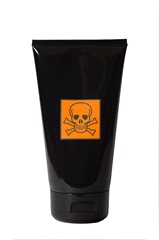It’s not surprising to me that the age of puberty in girls has been declining the last 15-20 years. Environmental causes have been a suspect, but the reasons have not been clearly understood. The problem with early puberty is this is associated with higher rates of obesity, cardiovascular disease, polycystic ovarian syndrome and even breast cancer later in life. The normal range for the start of puberty in girls is between 8 and 13 years. There are several factors that are influencing the declining age ranges. Obesity has something to do with it… because we know that overweight girls enter puberty at younger ages. High levels of psychosocial stress can also influence the onset of puberty. And… exposures to certain endocrine-disruption chemicals in our environment may also be a factor. Here are some things we know:
· Daughters of mothers with high levels of diethyl phthalate, triclosan, phenols and parabens in their system during pregnancy, entered puberty earlier than others. These chemicals are common in all kinds of cosmetics, toothpaste, soaps and several other personal care products.
Phthalates are found in perfumes, deodorants, shampoos, cosmetics and other scented products. Parabens are added as a preservative; toothpaste, soaps, lipstick and skin lotions often contain phenols.
· Resent research looked at 179 girls and 159 boys in California who were born to mothers who were pregnant between 1999 and 2000. The study looked at how prenatal exposure to endocrine-disrupting chemicals influences the age of puberty onset. The study was looking at exposure in the womb, knowing that these hormone disrupting chemicals have windows of susceptibility and this prenatal period is a very specific window. Mothers were interviewed twice during pregnancy and when their children were 9. Children were assessed every 9 months between ages 9 and 13. Levels of various chemicals were measured in the urine of the pregnant moms and in the 9 y.o. children. By 9 years of age, 55% of the children were overweight or obese and 69% were living below the federal poverty threshold. The majority were Latino.
Associations between higher prenatal chemical exposure and early onset of puberty were seen in girls. High prenatal monoethyl phthalate concentrations were associated with earlier development of pubic hair; high levels of prenatal triclosan, propyl paraben, and 2,4-dichlorophenol were associated with earlier onset of menarche in the children. Methyl paraben and 2,5-dichlorophenol in urine were associated with earlier breast and pubic hair development. The daughters of women with the highest amounts of these substances in their urine started their periods an average of 4 months earlier. There was no evidence that boys were affected by prenatal chemical exposure in the same way.
The endocrine-disrupting chemicals detected in this study are known to have estrogenic activity, and this is known to affect sexual development. Previous laboratory research demonstrates that these chemicals mimic the estrogen that we produce in our own bodies. Animal studies also demonstrate that these endocrine disrupting chemicals may significantly impact reproductive development and the timing of puberty. We can minimize exposure to these chemicals—especially for pregnant women, BUT FOR ALL OF US!! Over 90% of women in the U.S. have detectable concentrations of phthalate, phenol, and parabens metabolites in their urine.
Read labels for one, especially in the arena of personal care products- shampoos, lotions, toothpaste, cosmetics. There are many brands and options available that do not contain these chemicals. Eat organic food, especially fruits and vegetables. If you cannot or do not have access…
You can wash fruits and vegetables to remove potential chemicals. Limit the use of plastics and synthetic materials for food preparation and storage. I now have cloth bags to store my vegetables in. The next step I’m going to take is remove the yoghurt and cottage cheese, etc… from their plastic and put into glass containers in my fridge.
Get active—with friends, family, neighbors, stores, farmers, legislators— there are some communities that have been successful about limiting new pesticide sprays in their areas. It would be transforming if we could diminish these harmful chemicals— not only for the health of our children, but for all beings and life on this planet.


